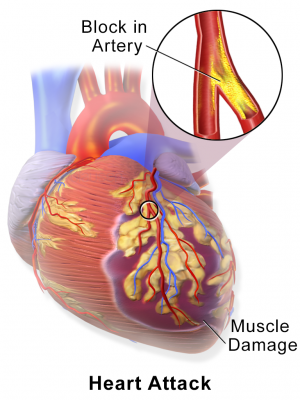#New study could inform treatment and prevent heart attack in diabetic patients

“#New study could inform treatment and prevent heart attack in diabetic patients”

A new study by researchers at the Baker Heart and Diabetes Institute and Monash University could help inform treatment and prevent serious events like a heart attack or death in diabetic patients at high risk of serious cardiovascular events.
The chilling links between diabetes and cardiovascular disease are clear, and this latest study shows, for the first time, the potential of the SGLT2 inhibitor dapagliflozin to stabilize vulnerable plaque in patients with diabetes to prevent plaque rupture and a heart attack.
This preclinical study, led by the Baker Institute’s Dr. Yung-Chih Chen and Professor Karlheinz Peter and Monash University’s Professor Karin Jandeleit-Dahm, and published in the Journal of the American Heart Association, provides further rationale for the use of dapagliflozin—the first of this novel class of glucose-lowering drugs to be made available in Australia—by health specialists including GPs, endocrinologists and cardiologists.
Importantly, the paper provides proof-of-concept to test the plaque-stabilizing capability of this medication and other anti-diabetic drugs.
Professor Peter, who is a cardiologist specialized in treating patients with heart attacks, says the effects on plaque stability demonstrated in this study with dapagliflozin could explain, at least in part, the reduction of cardiovascular events seen in diabetic patients treated with this medication.
Professor Jandeleit-Dahm, who is a clinician specialized in treating diabetic patients, states that diabetes is known to accelerate atherosclerosis (the build-up of fats in the artery) and increase plaque instability, which can lead to plaque rupture and heart attack, so much so that accelerated coronary artery disease in diabetic patients has become the leading cause of premature mortality and increased morbidity worldwide.
With a significant unmet need around diabetes-accelerated atherosclerosis and the identification of novel therapeutic targets and strategies, this latest paper comes amid strong global interest in this new class of medications.
While SGLT2 inhibitors have emerged as a new therapeutic class for lowering blood glucose, several clinical trials have demonstrated the efficacy of the glucose-lowering effect of SGLT2 inhibitors in association with improved cardiovascular outcomes.
“With certain anti-diabetic drugs increasingly being added to the standard repertoire of cardiologists, this latest study provides further support for the potential of SGLT2 inhibitors to play a pivotal role in preventing plaque instability, and cardiovascular events,” Professor Peter says.
While further clinical trials are needed to test the efficacy of this medication with regards to plaque stability, Professors Jandeleit-Dahm and Peter say the results are very promising and give weight to the cardiovascular benefits being seen beyond glucose control.
SGLT2 inhibitors may have kidney- and heart-protective effects in adults with type 1 diabetes
Yung‐Chih Chen et al, Sodium‐Glucose Co‐Transporter 2 (SGLT2) Inhibitor Dapagliflozin Stabilizes Diabetes‐Induced Atherosclerotic Plaque Instability, Journal of the American Heart Association (2021). DOI: 10.1161/JAHA.121.022761
Provided by
Baker Heart and Diabetes Institute
Citation:
New study could inform treatment and prevent heart attack in diabetic patients (2022, January 3)
retrieved 4 January 2022
from https://medicalxpress.com/news/2022-01-treatment-heart-diabetic-patients.html
This document is subject to copyright. Apart from any fair dealing for the purpose of private study or research, no
part may be reproduced without the written permission. The content is provided for information purposes only.
If you liked the article, do not forget to share it with your friends. Follow us on Google News too, click on the star and choose us from your favorites.
For forums sites go to Forum.BuradaBiliyorum.Com
If you want to read more Like this articles, you can visit our Science category.


